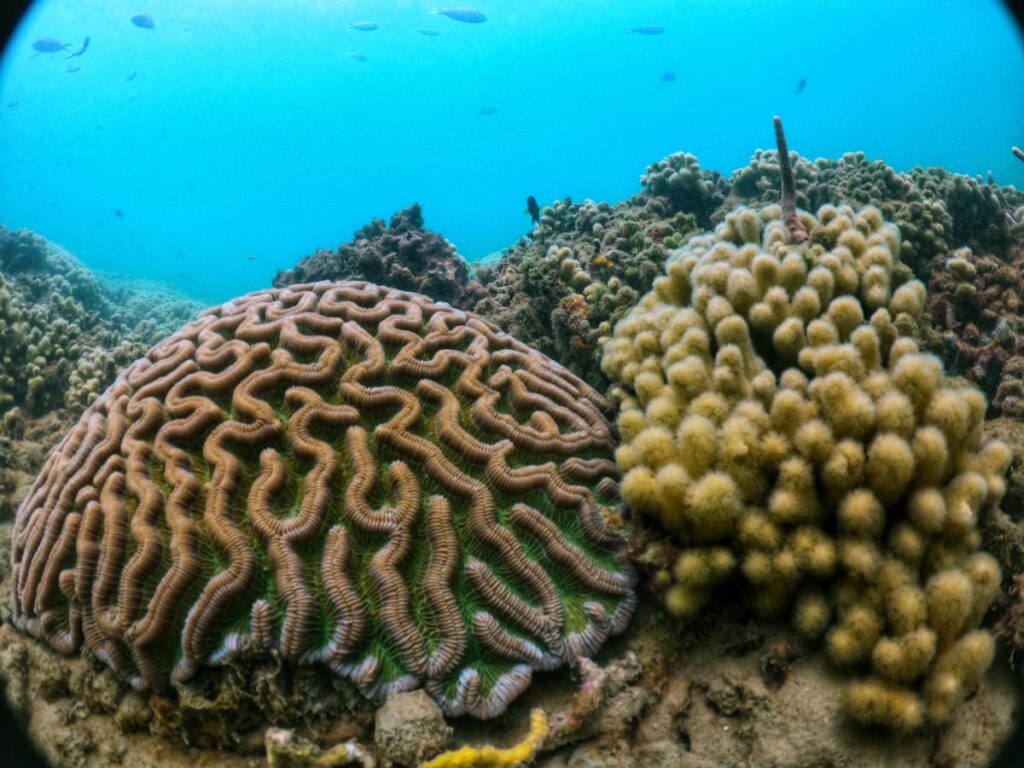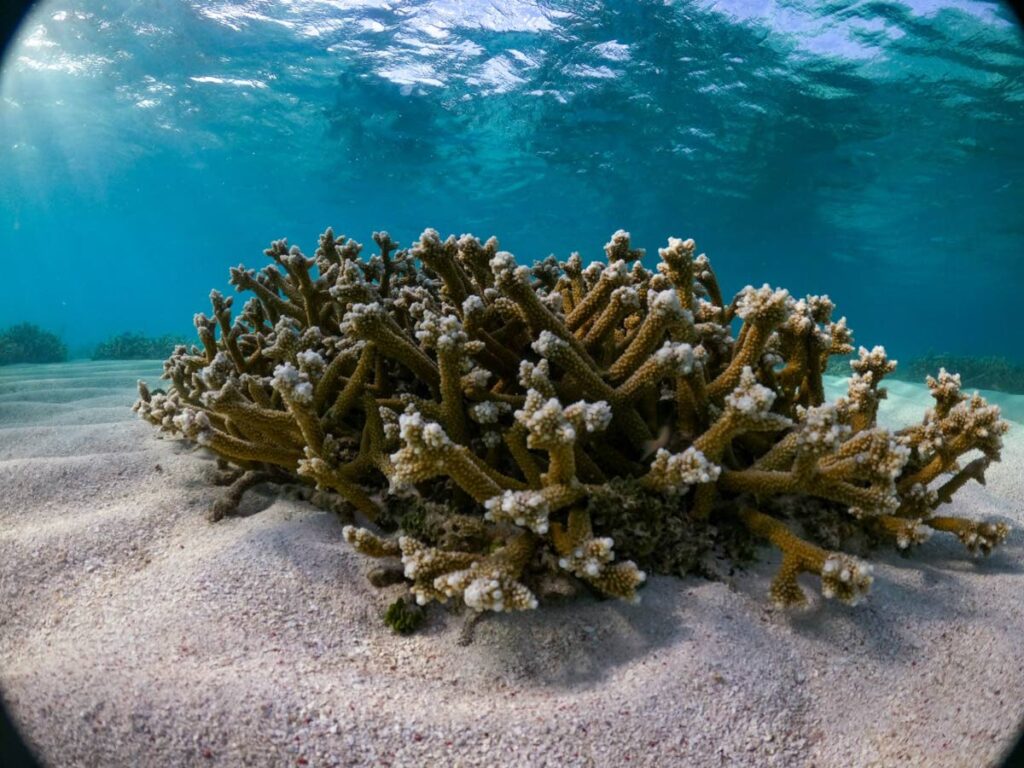Growing corals against global warming

Dr Anjani Ganase, coral reef ecologist, reviews current research and activities for coral reef conservation.
Extremely warm waters have hit the Caribbean, the second year in a row. In 2023, mass bleaching was observed throughout the Caribbean then the rest of the world.
At the beginning of this year the fourth global coral bleaching event was declared, the second within the last decade. We seem to be well on our way to 99 per cent loss in coral populations by 2050 with the current trajectory of global emissions.
Since I returned to Trinidad and Tobago to study reefs here, I have been reporting on coral bleaching every year. The severe coral bleaching last year decimated reefs throughout the Caribbean including the Meso-American Barrier Reef (Mexico and Belize), Jamaica, and Bahamas.
In Tobago, many brain corals bleached and died last year, and in 2024, many colonies started to pale and bleach as early as July. The reefs have little time to recover between the hot summer months of succeeding years.
A mass coral bleaching event occurs when many colonies of corals of different species lose their colour and turn white. Corals have a symbiotic relationship with micro-algae that live in their tissue. The algae provide nutrients sourced from photosynthesis, while the coral host provides essential minerals and removes waste for the algae keeping it happy in its home. This relationship breaks down under conditions of stress, such as excess heat or cold temperatures or even with influxes of fresh water, and results in coral bleaching. Global coral bleaching – remember all oceans are interconnected – occurs when coral reefs around the world all bleach in the same year because ocean temperatures are too warm during their summer months.
Caribbean research
While widespread coral mortality can be very discouraging for us, many scientists continue to research strategies to assist coral regeneration and improve resilience. Organisations such as Secore International have worked on developing methods of enhanced coral propagation to increase coral populations through assisted fertilisation and survival in the early stages of life which can be naturally very low. Improved genetic mixing aims to create opportunities for natural adaptation in the future. This is the opposite of what we do in agriculture where we practise selective breeding for desirable traits. Instead, we try to grow corals of many different gene combinations so that through diversity, the species may be prepared for a future of unknowns.

Assisted fertilisation involves the collection of coral sperm and eggs during the nights of spawning from several colonies, fertilising large batches, then allowing embryos to settle on specially designed units that can be planted on the reef to increase chances of survival. The method is used in several countries across the region with Tobago implementing it this year through the Institute of Marine Affairs.
The marine heat wave of 2023 provided the unique opportunity to observe how juvenile corals born through this assisted fertilisation method fared against an unprecedented marine heat wave. The corals ranged between one and four years and were made up of six species, all of which are important habitat providers on Caribbean coral reefs. Assessments were made in Bonaire, Curacao, Mexico, St Croix, US Virgin Islands, and Dominican Republic comparing the health of the coral juveniles to their natural parent populations.
In all species, coral juveniles showed significantly lower signs of bleaching (90 per cent of the pooled population was healthy) compared to their adult counterparts (only 24 per cent of the pooled population was healthy). Certain species of juveniles were also compared to coral fragments or clones created from adult populations to grow more coral structure. Again, corals born from assisted fertilisation fared much better against the heat wave.
This study is encouraging for people working to build coral reef resilience and using this strategy to provide evidence for building genetic diversity. It does not, however, mean that these corals are more likely to withstand bleaching as adults, since adults are generally more vulnerable compared to younger corals – adults are more set in their ways. The thinking is that if the coral juveniles are subjected to more heat waves as they grow up, they may be able to tolerate heat stress better.
Environment and genetics
This is exactly what another study done on the Great Barrier Reef (GBR) showed. Scientists from the Southern Cross University were able to identify coral species of variable tolerance to heat stress across the GBR. Corals that were more tolerant to heat stress had a history of heat stress, hinting at the possibility of acclimatisation. However, coral species within the same reef and exposed to the similar environmental conditions often had vastly different ranges of tolerance implying variability beyond the environment and more related to genetics. It is thought that the corals that survive will be genetically adapted to marine heat waves: those raised under conditions of annual heat stress may do better than their parents.
The two studies show that many coral populations will inevitably suffer mass mortality, especially if we don’t drastically reduce our carbon emissions. They also underline the need for marine management against chronic issues such as damage or disease caused by human activity, pollution or sedimentation. Healthier corals are more likely to have better thermal stress tolerance and have a better chance to withstand global warming.

Comments
"Growing corals against global warming"